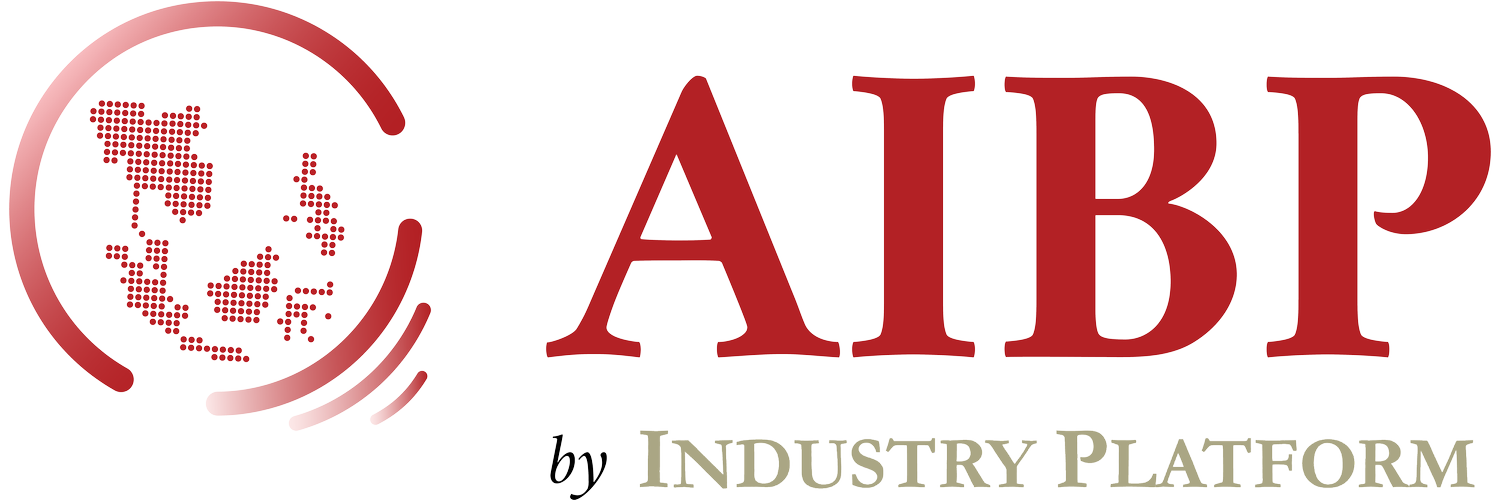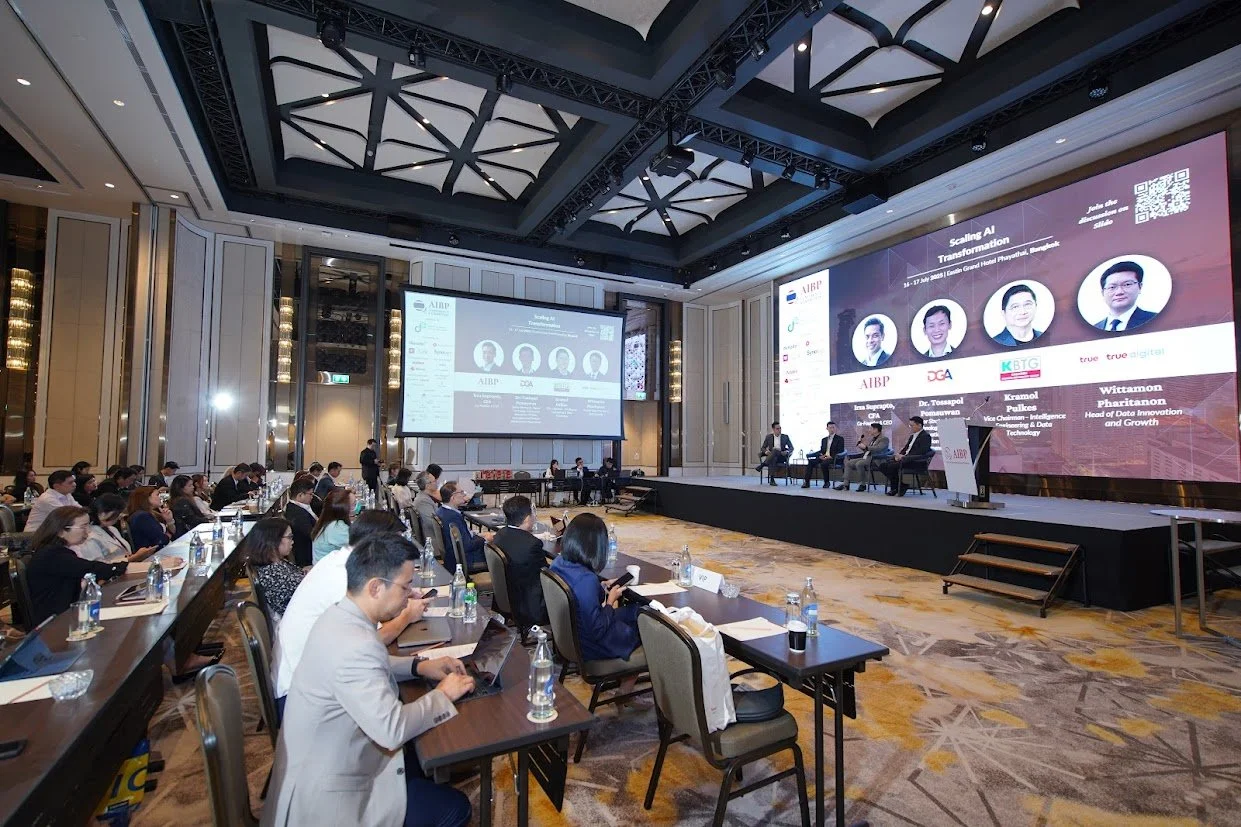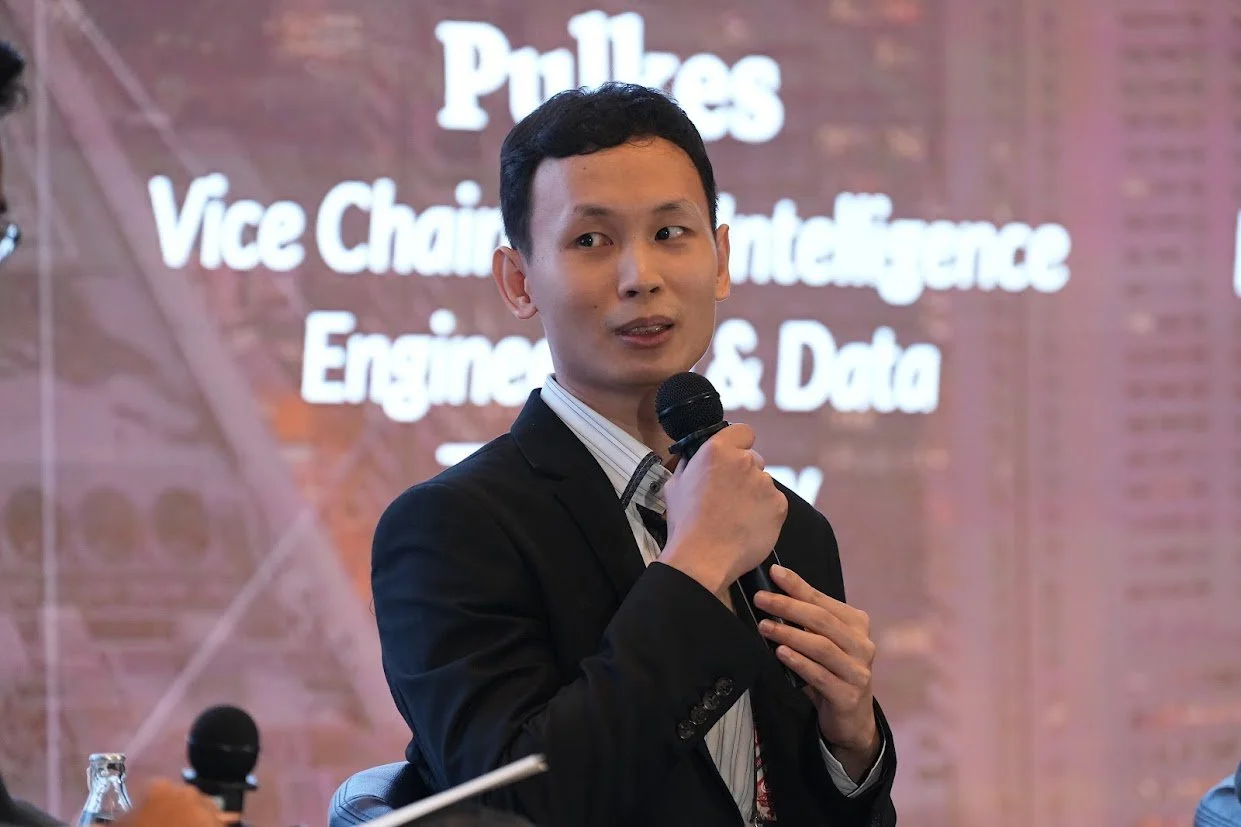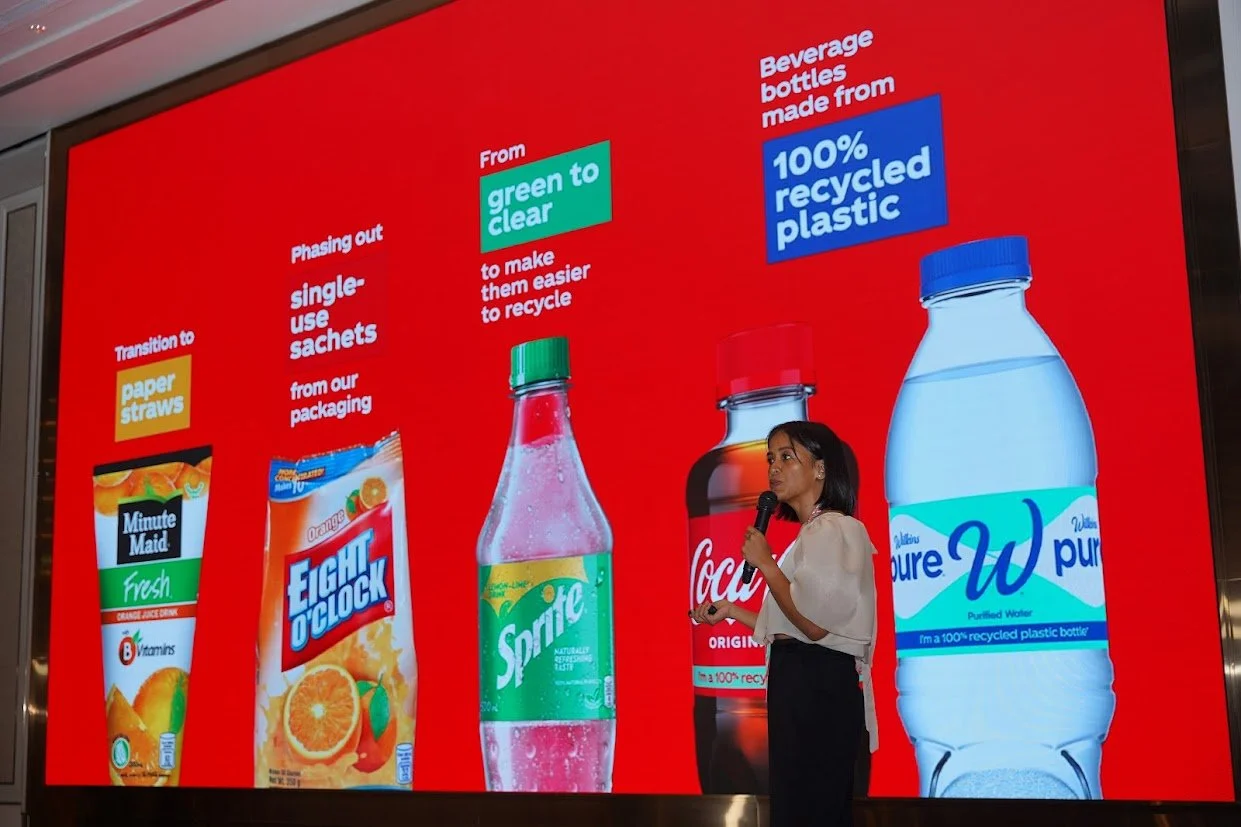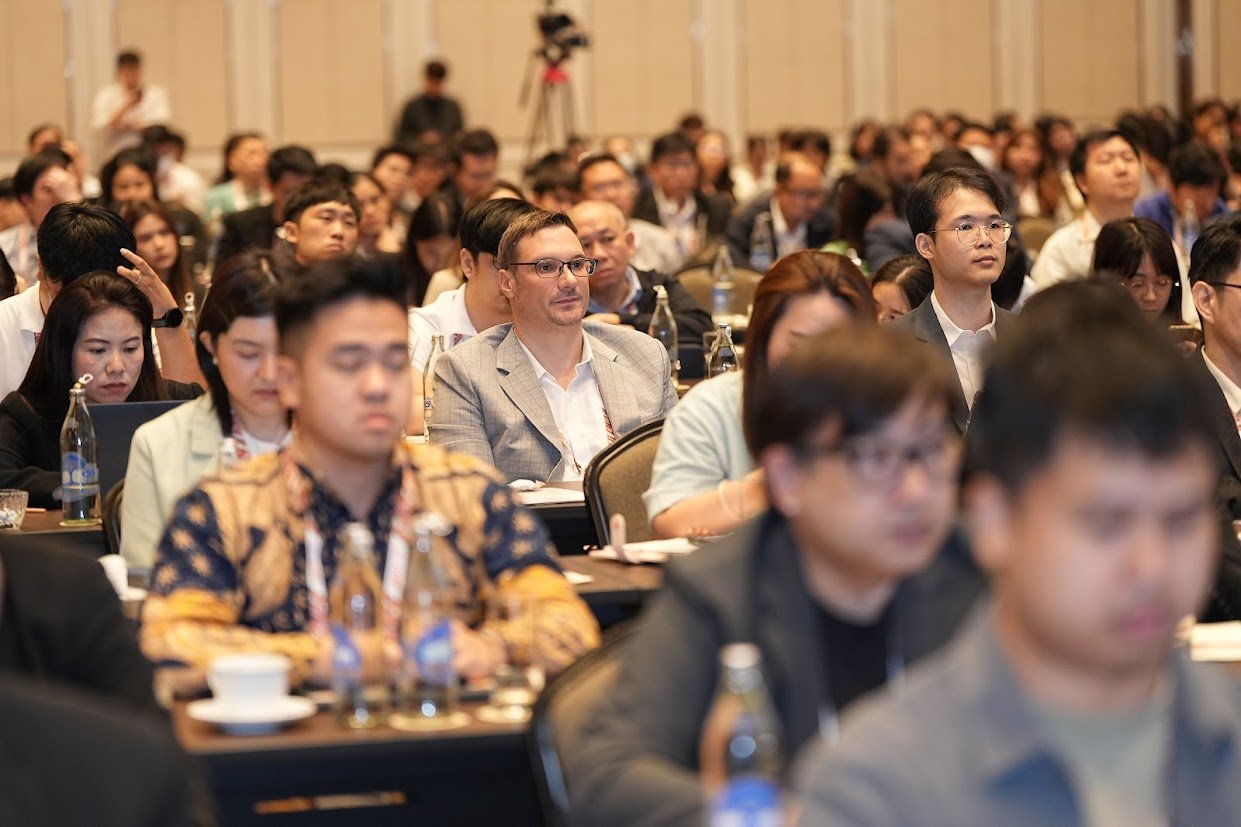Charting Thailand’s AI Trajectory: Day 1 Insights from the AIBP Conference & Exhibition Thailand 2025
The 50th ASEAN Innovation Business Platform Conference & Exhibition Thailand marks the 2nd conference in the AIBP series of regional conferences taking place this year. Discussions on the first day shone the spotlight on Thailand’s growing momentum in becoming a regional AI hub as public sector champions, digital leaders, and enterprise innovators came together to explore how AI is accelerating Thailand’s digital ambition. The sessions reflected a collective recognition that AI can be a catalyst for productivity, inclusivity, and long-term competitiveness.
From national infrastructure and policy to retail personalisation and industry-specific case studies, the discussions offered practical insights into Thailand’s digital economy, one grounded in human-centred design, strategic data use, and purpose-driven innovation.
The conversations revealed four critical focus areas shaping Thailand’s AI future:
Digital Public Infrastructure: Policy, Access, and National Readiness
Thailand’s government continues to serve as a catalyst for AI adoption. Leaders from the Ministry of Digital Economy and Society and the Digital Government Agency (DGA) shared their progress on building digital infrastructure and governance that will support future innovation. With more than 8,000 digital community centres across the country and over 2,000 public services unified through a national portal, Thailand is laying the groundwork for equitable access and operational efficiency.
"AI is like a calculator, a tool that will be embedded into future products. Our goal is to test, understand, and systematically integrate AI into public services," said Dr. Tossapol Pomsuwan, Senior Strategist, Digital Technology and Service Innovation Division, Innovation and Product Development Department, Digital Government Agency. His remarks underscored the pragmatic approach the government is taking, viewing AI not as hype, but as an everyday enabler for improving how citizens interact with the state.
Beyond infrastructure, discussions emphasised the need for robust data governance and continuous upskilling to ensure public trust and system-wide sustainability. As Thailand scales its AI adoption, maintaining inclusivity, data privacy, and digital readiness across rural and urban communities remains a top priority.
Enterprise Innovation in Action: Augmenting People, Not Replacing Them
Across industries, Thai enterprises are shifting from AI experimentation to execution. Executives from KBTG, Bangkok Hospital, Big C, and Osotspa showcased how AI is being integrated into end-to-end operations to improve accuracy, speed, and customer experience, all while keeping humans at the centre of transformation.
"We're not just implementing AI. We're augmenting our staff to work better and faster," said Kramol Pulkes, Vice Chairman of Intelligence Engineering & Data Technology, KBTG. Similarly, Dr. Thitipong Nandhabiwat, Chief Transformation Officer - Group 1, Bangkok Hospital, emphasised that staff is a key stakeholder, stressing the importance of change management in healthcare AI adoption.
Retail leader Surachai Hirannitichai, EVP - Digital Technology & Transformation, Big C, added that process first, then people, and then technology must be the order of execution, highlighting the risk of pushing tools without operational clarity. A standout example came from Pajaree Saengcum, Head of Digital Technology, Osotspa, who detailed their AI-Augmented Net Sales Intelligence Engine, an initiative that helped the company address a four percent revenue drop through smart automation in finance, logistics, and sales forecasting.
"Be empathetic and be simple, because the post-labour era is coming," Pajaree noted, signalling a shift toward AI applications that support rather than replace human expertise.
The enterprise story extended into the convergence of AI and IoT, particularly in manufacturing, logistics, and agriculture. In a panel moderated by Dr. Polawat Witoolkollachit, speakers discussed how AIoT is enabling predictive maintenance, asset optimisation, and real-time decision-making. Dr. Teesid Leelasawassuk, Smart Machine and Mixed Reality Research Team, Industrial IoT and Automation Research Group, NECTEC, remarked that it’s not just about the machine; it’s about getting people to work seriously with it. The panellists agreed that transformation requires more than tools. It requires mindset shifts, leadership, and integrated teams.
Responsible Adoption: Trust, Governance, and Personalisation
As AI matures across Thailand’s digital ecosystem, leaders emphasised that success hinges on how responsibly the technology is deployed. Trust, data protection, and relevance were core themes, especially in sessions focused on personalisation and consumer engagement.
"PII [Personally Identifiable Information] is a must. Data engineers should never know the owner of the data," said Anshera Chumchaivate, former Head of Data at Krungsri Consumer, emphasising the need for strict data governance as the foundation of trust.
Joompot Inkratanakul, Head of Consumer Platform Product, The 1, Central Group, warned that AI adoption must always tie back to purpose. "If AI cannot help you execute or add productivity, then you would just have a problem of adopting AI for options’ sake."
Panellists agreed that transformation doesn’t come from technology alone. It requires clear alignment with business outcomes, a deep understanding of customer needs, and strong ethical standards. Responsible adoption means balancing innovation with accountability, ensuring personalisation strategies do not compromise trust, privacy, or relevance.
Purpose-Driven Innovation: Sustainability and Societal Impact
Day 1 concluded with a compelling reminder that digital transformation must also serve the broader good. In a session led by Atty. Chrissete Agustin, Head of Regulatory and Sustainability Compliance at Coca-Cola Beverages Philippines, the spotlight turned to environmental innovation and community impact.
Coca-Cola’s sustainability program includes nationwide PET bottle recovery, investment in bottle-to-bottle recycling, integration of renewable energy, and sustainable packaging development. These are not just regulatory responses. They are built into the company’s core operations and serve as a model for how large organisations can drive systemic environmental change while aligning with ESG priorities.
The message was clear. Digital transformation is not complete without sustainability, and innovation must serve environmental and societal goals alongside economic growth.
Day 1 of AIBP Thailand 2025 reinforced that AI is more than an emerging technology. It is a tool to reshape how nations govern, how enterprises operate, and how societies evolve. Thailand’s digital journey is rooted in strong public leadership, practical enterprise transformation, and a firm commitment to responsibility and impact.
As the country moves forward, its model of human-centred, purpose-driven innovation offers a regional blueprint for scaling AI thoughtfully and inclusively. AI, when guided by vision and values, is not just a digital upgrade. It is a national capability.
